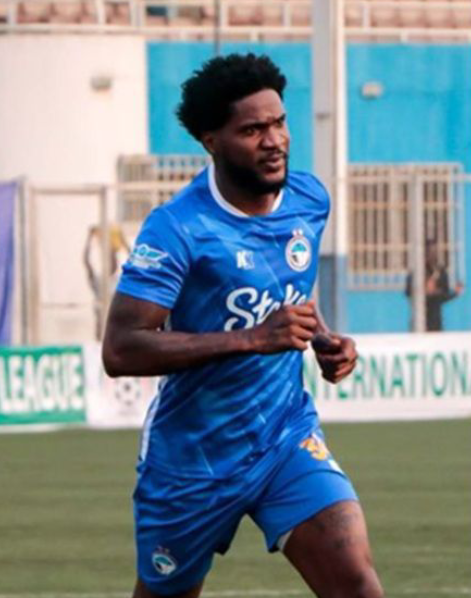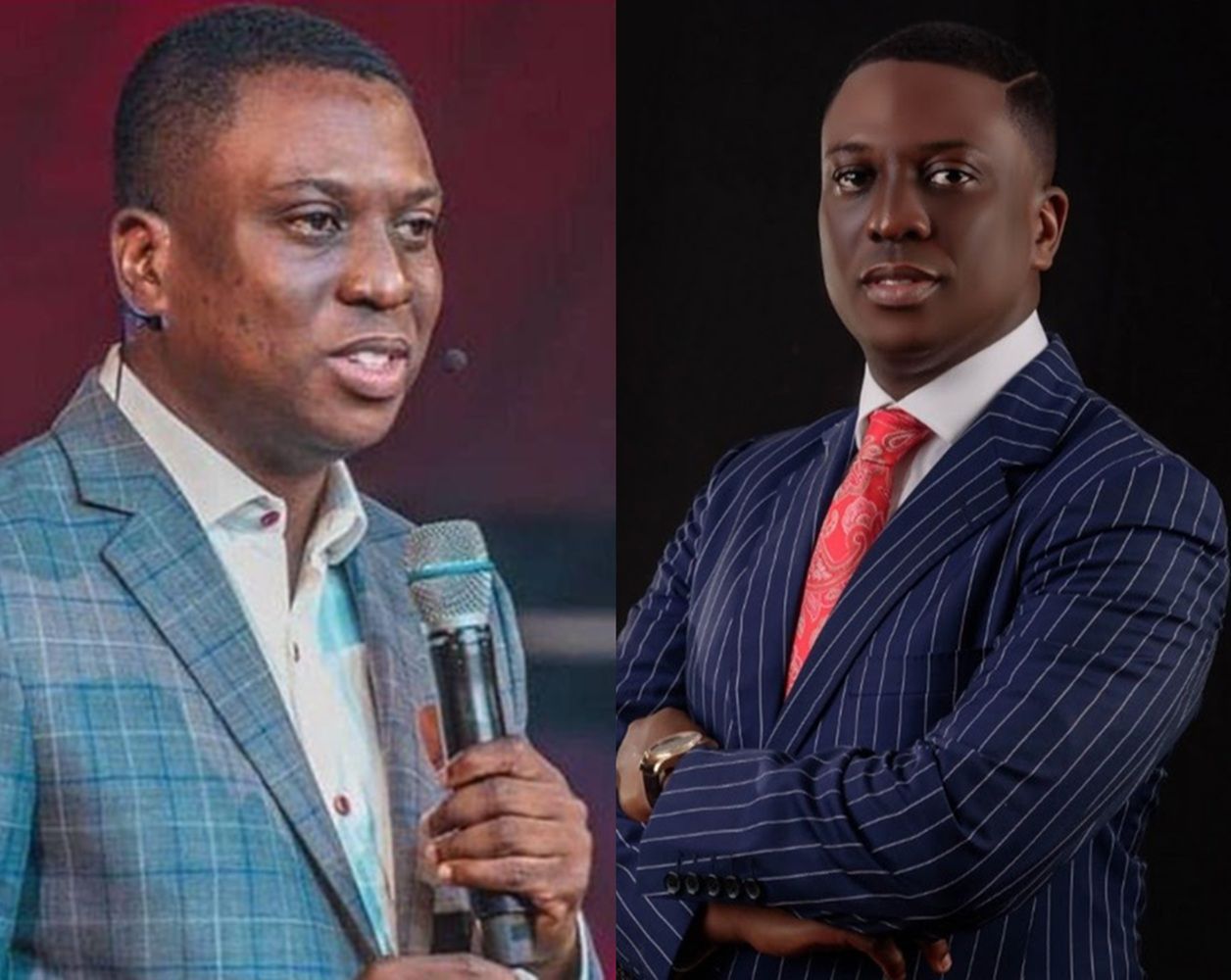
"Because I Get Money, I Shouldn’t Ask for What I Worked For?" – Brown Ideye Slams Enyimba FC Over Unpaid Bonuses in Fiery Outburst

In a fiery and emotionally charged outburst on social media, Nigerian footballer and 2013 AFCON champion Brown Ideye has called out Nigeria Professional Football League (NPFL) giants, Enyimba FC, over unpaid match bonuses owed to players from last season. The former Super Eagles striker did not mince words as he lambasted the club’s management for what he described as gross neglect of players’ welfare, questioning the moral logic behind withholding earnings simply because some players are perceived as financially stable.
“Because I get money I should not ask for the one I worked for?” Ideye tweeted, clearly furious at the club’s failure to settle outstanding payments months after the season wrapped up. “Please pay me and the players last season match bonuses... The season ended in May, till now nothing. New season will start next month,” he added.
Ideye, who holds the national honour of Member of the Order of the Niger (MON), is not just speaking for himself but for a host of players who, despite enduring grueling match schedules, brutal travel conditions, and mounting family responsibilities, have yet to receive their rightful dues. His tweets ignited immediate reaction across social media, drawing attention once again to the recurring issue of player welfare, unpaid salaries, and bonuses in Nigerian football.
The former Olympiakos and West Brom forward didn’t stop at simply demanding payment. He highlighted the harsh realities faced by the very players who help sustain the league’s reputation. “These players deserve the best. But they're living like jobless men. Some of them have wives, kids, and family to take care of,” Ideye wrote. He further exposed the shocking logistics challenges many NPFL players endure, recounting how players have to embark on long and risky road trips between match venues with barely enough time to rest before kickoff. “Do you even know what it takes to travel from Aba to Kano by road and play a game the next day? I guess you have no idea,” he said, directing his criticism to those who downplay the players’ plight.
The rant has sent shockwaves through the Nigerian football community, with many praising Ideye for using his platform to call out injustice and speak truth to power. While some detractors attempted to dismiss his complaints by insinuating that he, as a successful player, shouldn’t concern himself with unpaid dues, Ideye firmly shut down such narratives. “Maybe because no be your friend or brother dey this situation, so you can be typing BS,” he retorted in a follow-up tweet, refusing to let the conversation be derailed.
The outcry brings to the fore the systemic issues that have plagued Nigerian club football for decades—delayed salaries, unpaid bonuses, poor logistics, and a general disregard for player welfare. While clubs like Enyimba have historically held a prestigious place in Nigerian football as two-time CAF Champions League winners, their recent administrative lapses are casting long shadows over that legacy.
Players in the NPFL often find themselves at the mercy of club executives who delay or outright deny payments even after the league ends. This lack of accountability has led to a high turnover of talent, with many local players choosing to move to obscure leagues abroad in search of financial stability. For a club of Enyimba’s stature to be publicly called out for something as fundamental as unpaid match bonuses only adds to the growing concern that the league is failing to protect its most important asset — the players.
Fans have also weighed in, expressing disappointment at how frequently similar stories emerge. “How can we expect our league to grow when our players are being treated like beggars?” one user posted on X (formerly Twitter). Others called for the Nigeria Football Federation (NFF) and the League Management Company (LMC) to intervene and enforce financial regulations that compel clubs to fulfill their obligations to players.
The timing of Ideye’s callout is also critical. With the new season set to kick off next month, clubs are already in preseason mode, scouting new talents and making tactical preparations. Yet, unresolved financial issues from the previous season hang ominously over the league’s credibility. For many players, starting a new season while still being owed from the last one is not only demoralizing but also unsustainable.
Ideye’s bold stance has reignited hopes that the voices of ex-internationals and respected footballers can bring meaningful change. His willingness to stand in solidarity with local players — despite having played in some of the world’s top leagues — demonstrates a rare level of empathy and leadership. It’s a stark reminder that being a professional footballer doesn’t mean forfeiting your right to be treated with dignity and fairness.
Efforts to reach Enyimba FC’s management for comment have so far proven unsuccessful. The silence from the club’s end has only fueled further backlash, with fans and stakeholders now demanding transparency and immediate action. If Enyimba fails to address the matter promptly, the situation could escalate into a league-wide crisis, especially if other players or clubs come forward with similar grievances.
As it stands, Brown Ideye’s outburst is more than just a personal plea for owed wages — it is a blistering indictment of a system that continues to fail the very players who put their bodies on the line week in and week out. His voice has amplified the collective frustration of countless others who have suffered in silence. The question now is: will the powers that be finally listen and act, or will this simply be one more episode in the endless saga of broken promises in Nigerian football?
One thing is clear — Brown Ideye has thrown down the gauntlet. And in doing so, he may have just sparked a long-overdue reckoning in Nigerian club football.


